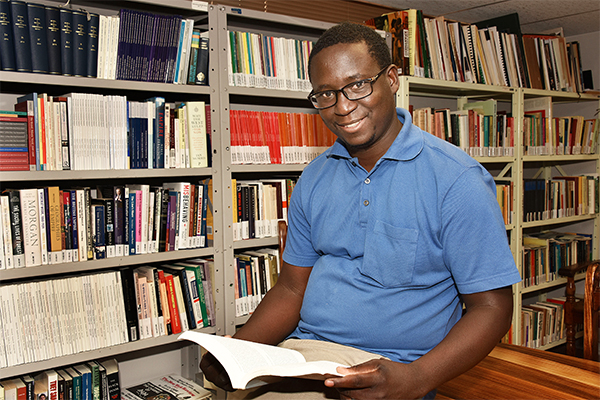Latest News Archive
Please select Category, Year, and then Month to display items
17 August 2020
|
Story Nitha Ramnath
|
Photo istock

Within the next five years, 60% of the world’s population will be living in urban areas. Urban living comes with large-scale economic advantages and society benefits from economies of scale. But, COVID-19 is challenging urban living. We have introduced the term ‘social distancing’ and some policy analysts have even argued for the de-densification of cities.
Join us for a discussion where our panellists will analyse this perceived conflict.
Date: Thursday, 27 August 2020
Time: 14:00 to 15:30 (South African Standard Time – GMT +2)
Please RSVP to Elelwani Mmbadi at
mmbadiE@ufs.ac.za no later than 25 August, upon which you will receive a Skype for Business meeting invite and link to access the webinar.
Speakers:
Prof Ivan Turok
Dr Geci Karuri-Sebina
Mr Thiresh Govender
Moderator:
Lochner Marais
Land a fertile field for historians
2017-12-25

Dr Admire Mseba, historian and researcher in the International Studies Group (ISG).
Photo: Charl Devenish
The use of land and the economics of Southern Africa at present is a contentious subject at almost every level of society. A historian and researcher who revels in happenings in these two areas, is Dr Admire Mseba, a postdoctoral research fellow in the International Studies Group (ISG) at the UFS.
Dr Mseba grew up in the Mberengwa region in southern Zimbabwe, known for cattle farming and mineral mining. While at the University of Zimbabwe, he became interested in economic history and archaeology, and completed his PhD at the University of Iowa in the USA. During his time there, Dr Mseba also became passionate about environmental history.
A historian's ability to think and engage critically on diverse subjects drew Dr Mseba to his field. Currently, he is busy with three research projects. Firstly, he is working on a book on social relations, about access to land in Zimbabwe. He is also examining regional and national efforts to control migratory pests during the 20th century, in particular, the red locust. In collaboration with a colleague at the ISG, Dr Mseba is also researching monetary systems in central Africa, covering the present-day countries of Zimbabwe, Malawi, and Zambia.
Dr Mseba believes future research opportunities in the domains of economic and environmental history abound. For one, the land question has been very topical in Zimbabwe for more than a decade—as it is now in South Africa—and needs more scrutiny. Regarding agrarian pestilences, he indicates the recent phenomenon of armyworm invasion. “There are so many opportunities for historians to investigate. There are so many ways to think about these things and trying to put it in perspective.”